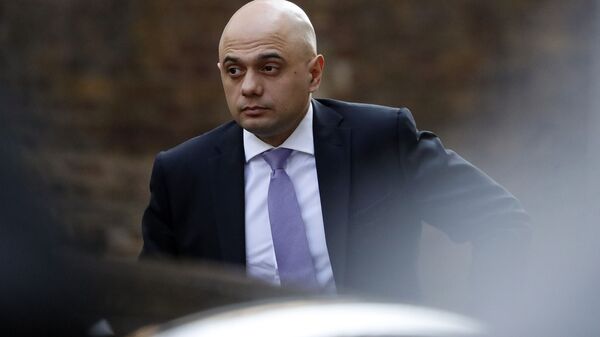In his last major speech as Home Secretary before the new Prime Minister is elected next week, Javid is set to launch a barely-disguised broadside on Donald Trump, saying societies "must confront the myths" about immigration, and called on political leaders to moderate their language to tackle extremism.
There seems to be little other motivation for Javid’s comments than Trump recently sending tweets telling four US congresswomen to "go back" to the countries from which they came, despite three of them being born in the US.
— Milo Comerford (@MiloComerford) July 19, 2019
The fourth, Ilhan Omar, moved to the US from Somalia as a child almost 30 years ago. Supporters of Trump took aim at the congresswoman during a campaign rally this week, chanting, "send her back, send her back".
In a clear reference to the President's remarks, Javid said everybody has their "part to play" in stopping the spread of bigotry, and it was important to “have the courage” to confront racism and “take decisive action”. Broadcasters “must not give a platform to extremists”, police “must swoop on the worst offenders” and public figures “must moderate their language”.
"I'm from an immigrant family, I know what it's like to be told to go back to where I came from. We must confront the myths about immigration that extremists use to drive divisions. We know the scale is exaggerated to stoke up fear and that they use immigration as a proxy for race,” Javid said.
Booby Traps?
The comments were also condemned by Conservative leadership candidate and current Foreign Secretary Jeremy Hunt.
"I've got three half Chinese children, born on the NHS, with British passports. I would be utterly appalled, horrified, it would be unacceptable to me or my wife, if anyone ever told them to go back to China,” he said.
Outgoing Prime Minister Theresa May also laid the boot in, saying Trump’s remarks were “completely unacceptable”.
However, Hunt’s rival and leadership frontrunner Boris Johnson, a close ally of Trump, found himself somewhat lost when pressed for comment on the President’s statements during a debate hosted by The Sun.
"I simply can't understand how a leader of that country can come to say it…You can take from what I said what I think about President Trump's words,” he mumbled.
It’s not the first time Johnson has been seemingly wrong-footed by his opponents due to his ties with the US President. Earlier in July, British envoy to the US Kim Darroch was forced to resign following a leak of memos in which he branded Trump "inept and "incompetent”, among other sobriquets. In response, Trump called him “a very stupid guy” and said Washington wouldn’t deal with him.
Despite May expressing complete faith in the diplomat, Johnson refused, leaving Darroch’s position untenable. Johnson’s enemies in politics and the media widely derided Johnson’s failure to back the envoy, and Hunt turned the issue into a prominent campaigning point.
“Who chooses our ambassadors is a matter for the United Kingdom government and the United Kingdom prime minister, so I’ve made clear that if I am our next prime minister, the ambassador in Washington stays,” he said.
In turn, senior Foreign Office minister Alan Duncan said Johnson had “thrown our top diplomat under a bus”, and railed against the likely future Prime Minister’s inability to stand up to Washington.


